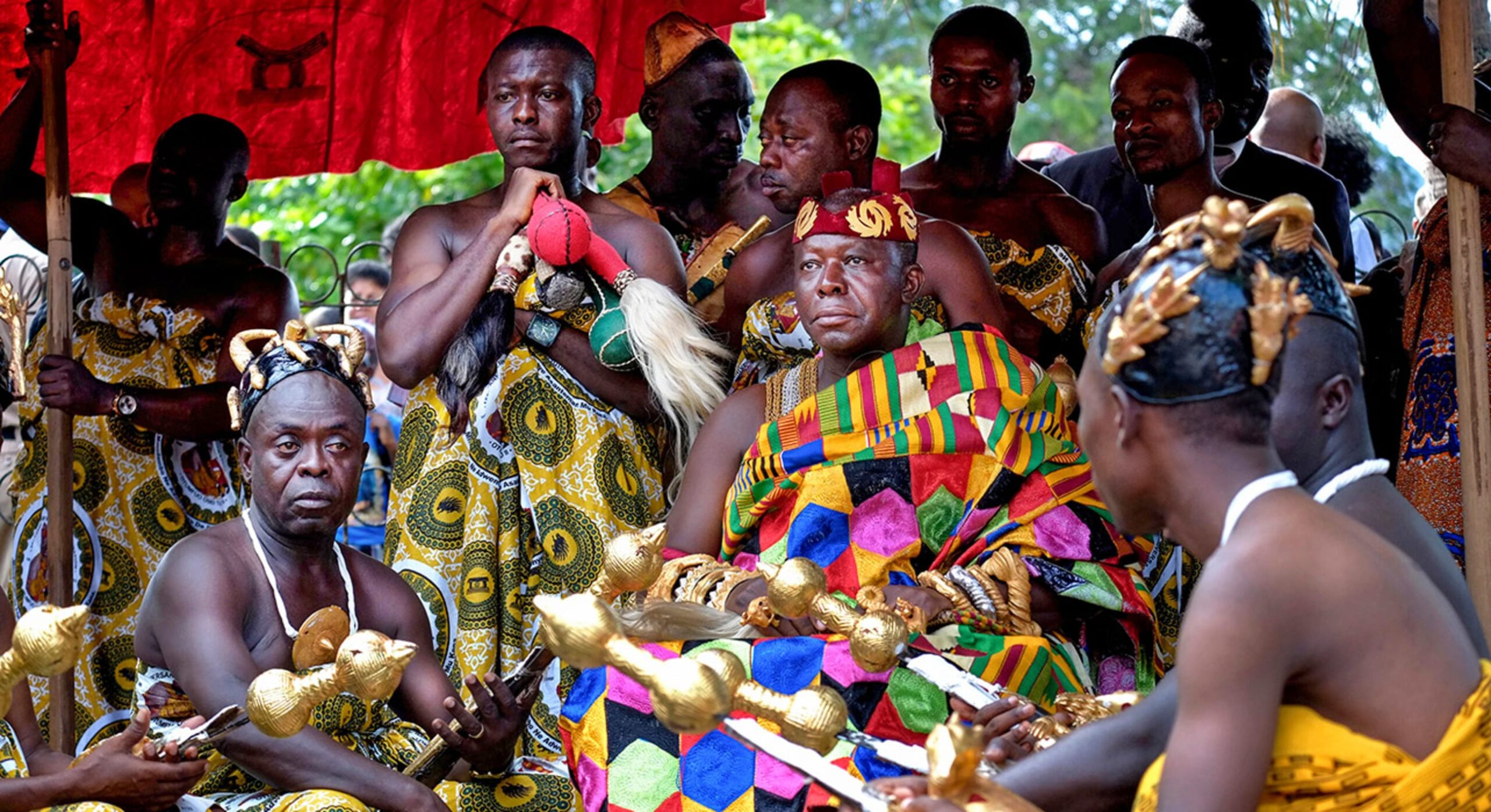
The Ashanti Nation is a federation of Akan tribes in what is today Ghana. Locally known as the Asante, the kingdom is perhaps one of the most recognizable cultures of West Africa. Today the kente cloth is worn across the world to represent black excellence. The rich history and culture make their objects ideal for adorning museums across the world. After all, while most museum visitors tend to be drawn to the shiniest of displays. It is no surprise one of the most priceless pieces of artwork from Sub-Saharan Africa, The Golden Head of Karikari, is an Ashanti artifact displayed at the Wallace Gallery in London.
While the Asantehene is regarded as the ultimate ruler of the Ashanti Kingdom, the Golden Stool is considered to be the highest power in the kingdom. Believed to contain the soul of the kingdom, the Golden Stool, according to oral history, was conjured from the cloud by Priest Okomfo Anokye.

Ashanti and The British
The British Empire in the 18th to the 19th century held a dominant power on the African continent. Unlike the French Empire, the British Empire actively held campaigns of conquering various places on the Dark Continent, Asia and, the Americas, and the empire had the resources and the manpower to do so. This manpower was accrued from many of the colonies in the West-indies and Asia, in places such as India. Ghana has always been desirable for many European powers. Resources such as gold have drowned the Portuguese since 1482 when the Portuguese build the Castle Jorge da Mina, today is known as Elmina Castle (Feinberg 1970).
This is a map of Kumasi, the capital city of the Asante Kingdom. Marked is the Manhyia Palace.

The Ashanti Kingdom prove a challenging task for the British forces. While lacking in weapons compared to the British, the kingdom’s unity under the Golden Stool meant they could mobilize a substantial army whenever the throne is threatening. The British wanted gold, and gold was the Ashantis’ main resource. There was an encounter that was never going to be peaceful. Although many scholars argued that both the Ashantis and the British did not want war, the Ashantis were never going to let the British rule over them, after all the Ashantis have for many centuries establish themselves as the most feared groups in the region and the most powerful (Wasserman 1961). On the other hand, the British assert themselves as the dominant force wherever they go and will not simply let the Ashantis dictate terms in any relationship they may establish.

Kumasi Fall to the British
After the Ashanti kingdom was defeated in 1874, the once formidable Ashanti army was weakened. The British exiled the Asantehene Prempeh I to Seychelles before setting up a government office in Kumasi. The war of 1900, commonly referred to as The War of the Golden Stool or The Yaa Asantewaa War, gave the British total control of the already weakened Ashanti kingdom. The war, which according to oral history and British account, was mainly caused by the British Governor, Sir Frederick Hodgson, demanded the Ashantis surrounder the Golden Stool (believed to hold the soul of the Ashanti people). To read more about the eyewitness account of the speech click here.


